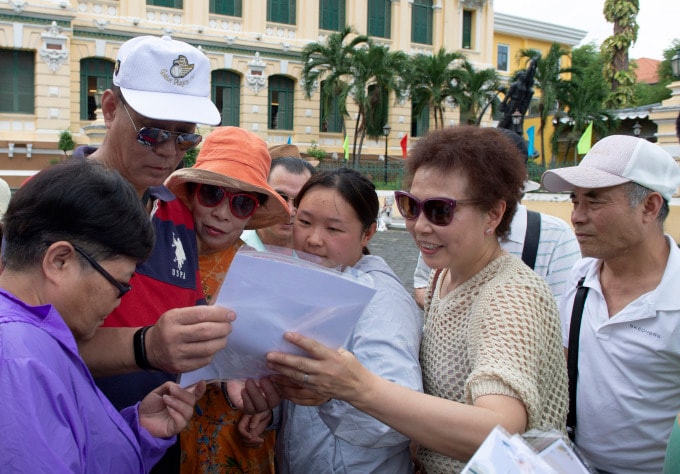This year's Golden Week is considered a turning point for Chinese tourism as the number of outbound tourists increased sharply, almost to the level before the pandemic.

Chinese tourism is expected to recover significantly during the upcoming Golden Week, from October 1 to 7, according to research by Dragon Trail, an organization specializing in the Chinese tourist market. This week is considered an important milestone in the recovery process of the outbound market (outbound tourists) of the billion-people market.
"We expect this October's Golden Week to be the best since the country reopened its borders," Dragon Trail shared in the report.
Industry experts expect a revival as Chinese travelers book international trips with a focus on personalized experiences.
According to Dragon Trail research, 40% of respondents who planned to travel later in the year took their trips in October, indicating a huge demand for overseas travel during the National Day holiday. Aviation and travel data analytics company ForwardKeys said the number of international air tickets purchased by Chinese people during Golden Week reached 85% compared to the same period before the pandemic, up 32% from last year.
While Chinese people are not traveling abroad as much as they did before the pandemic, growth is still evident. In August this year, 16% of respondents to Dragon Trail’s survey said they had traveled abroad, up significantly from 4% last year. 60% of those surveyed said they had traveled abroad at least twice.
Safety barriers, the top factor preventing tourists from traveling after the pandemic, have been broken down by Chinese tourists. They say they now feel safer traveling. Europe and Southeast Asia are the top choices for Chinese tourists.
Chinese travel trends have changed. Today’s travelers are no longer satisfied with conventional sightseeing tours. According to Dragon Trail Research, 70% of respondents participated in cultural and sporting events during their trips.
Experiences range from museum visits and operas in Europe to fireworks festivals in Japan. Cruises and self-drive tours are increasingly popular, reflecting the Chinese traveler’s personalised approach to travel.
The Paris Summer Olympics also showed a shift in Chinese tourists' preferences as they preferred to attend global events and have iconic experiences abroad more than before.
These trends show that Chinese tourists now prioritize unique activities and experiences rather than simply choosing a tourist destination as before.
A combination of thriftiness and willingness to spend on important experiences defines today’s Chinese travelers. Most plan to spend $1,400 to $4,000 per trip, carefully allocating their budgets to each destination. They are willing to spend the majority of their money on local cuisine, followed by entertainment and cultural activities. In addition, promotions and discounts are still attractive to Chinese tourists, especially hotel and cruise booking vouchers.
The main trend among Chinese travelers that emerged after the pandemic was a short planning time frame. About 64.7% of respondents planned their trips two months before departure, with trips lasting 4-7 days.
TH (according to VnExpress)